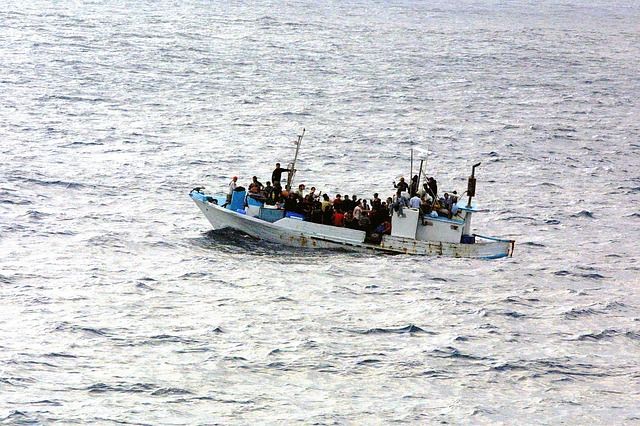A boat with refugees capsizes off Italy

At least 13 women have died and eight children have gone missing after a boat capsized in rough seas on Sunday, just off of the Italian island Lampedusa. The vessel was carrying about 50 people, and according to an initial reconstruction of events, they moved to one end of the vessel as a rescue boat arrived, which caused the overturn.
Italian authorities have rescued 22 survivors. According to their accounts, the boat carrying mostly people from sub-Saharan Africa had left Libya and reached Tunisia, where another 15 people boarded, before continuing on their route to Sicily. Statistics indicate that in September, about 2,500 people arrived in Italy by sea from North Africa, and almost all of them started their journey from Tunisia. The numbers represent a third of the 7,637 people who have arrived since the start of the year, data from the Interior Ministry shows.
At the same time in Brussels, the migration commissioner, Dimitris Avramopoulos, asked member states to stand behind a temporary plan to get migrants off boats in the Mediterranean Sea as soon as possible and distribute them among willing countries. “It’s a moment for all member states to show more solidarity and more responsibility,” Avramopoulos told reporters in Luxembourg. “We cannot continue like this with what is happening in the Mediterranean. We need permanent mechanisms,” he added.
IZA World of Labor author Jesús Fernández-Huertas Moraga has looked at how market mechanisms can solve the refugee crisis. In his article, he notes: “The unequal distribution of refugees across countries could unravel the international refugee protection system or, in the case of the EU, hinder a common policy response to refugee crises.”
“A market for tradable refugee admission quotas can be combined with a matching mechanism linking refugees and receiving countries, while taking the preferences of both into account. The system would distribute refugees to the countries where it is less costly to host them. This tradable quotas market is a more flexible system than one of binding quotas, and the matching mechanism minimizes implementation costs,” he concludes. According to the Amnesty migration researcher, Matteo de Bellis: “A strong agreement will help save lives and demonstrate that EU countries are committed to working together to uphold basic values and international obligations.”
Read Jesús Fernández-Huertas Moraga’s article Can market mechanisms solve the refugee crisis?